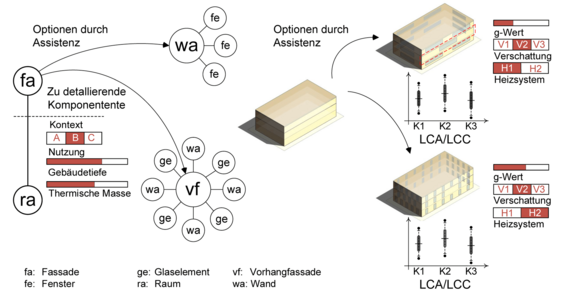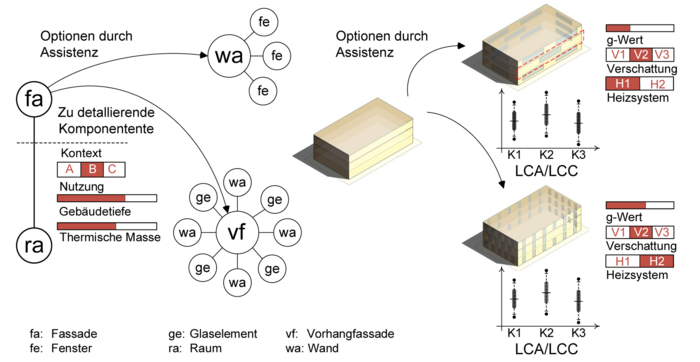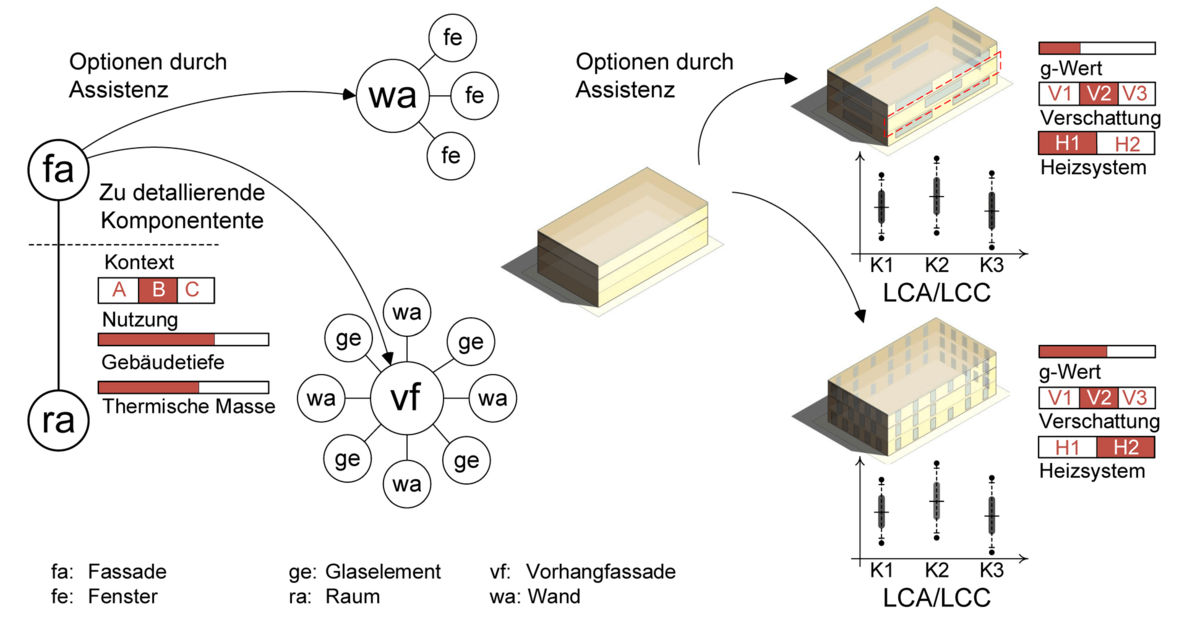


(Kopie 3)
Subproject 4 in the DFG researcher unit EarlyBIM
Researchers
Xia Chen, M. Sc. | Ueli Saluz B. Sc.
Performance-oriented building, aiming at low environmental impacts and low lifecycle costs, is becoming increasingly necessary today with respect to sustainability. In early phases, decisions during the design evolution and detailing process already determine the performance of buildings to a great extent. However, the potentials and impacts of such design decisions are often not known. The related complex dependencies are not well understood. To support sustainable building, the project will develop a prognosis and assistance system that is embedded in digital building modelling with respective detailing processes in early design phases. For instant performance prognosis, a component-based approach of machine learning (ML) replaces time-consuming and labour-intensive simulations as they are required for heating and cooling or for daylight in buildings. The approach models building construction and technology according to a paradigm of systems engineering and captures the dynamic behaviour by coupled ML components. The component approach also integrates the static calculations as they are required for lifecycle analysis (LCA) and lifecycle cost (LCC). Sampling methods disclose uncertainties in dynamic as well as static calculations. A knowledge base stores the developed components and performance models to provide instant access for immediate application in digital design and detailing processes. An assistance system based on these components will provide recommendations in the form of detailing options and strategies for the development of the design that show outstanding performance. For this purpose, graph transformations describe detailing operations related to the particular decision situation. Sampling and optimization methods explore the design space that is described in this way, and identify options with high potential that are returned as strategies for informed decisions. As a next step, features and similarities of the decision situations serve to develop the assistance system based on machine learning. Classifiers learn, based on the results of the design space exploration, to recommend detailing options and strategies for similar decision situations. These recommendations and their evaluations are available as feedback for informed decisions with regard to performance-oriented building design.
The project is part of the DFG researcher unit EarlyBIM for2363.blogs.ruhr-uni-bochum.de/en/.
Duration 07/2020 bis 07/2023
Funding
Deutsche Forschungsgemeinschaft (DFG)
Identifier
GE 1652/3-2


